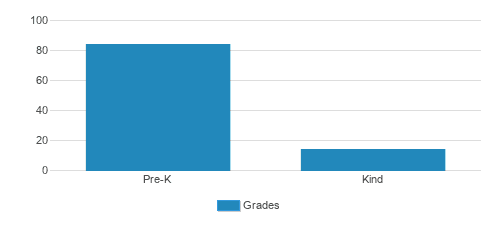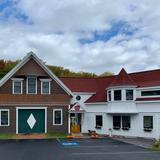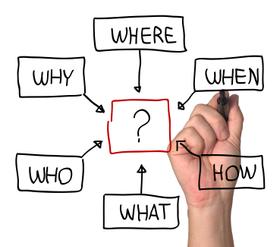The Childrens Center believe fostering development should be the aim of education - that each individual is unique and has his/her own temperament and learning style.
The individual brings this uniqueness into each new experience and takes an active role in the process of learning.
We learn through our actions and interactions with people and our environment.
As teachers, we are also learners, testing out and perfecting our theories about how children learn and how we may best facilitate the process.
We believe that the theories children construct about how the world operates (e.g.
how blocks can be stacked to build a bridge, how to obtain a toy that someone else is using, and when to stop pouring milk so it won't spill) forms the foundation for more complex skills of reading, writing, mathematical, social and moral reasoning.
Thus, we believe development can best be facilitated by giving children a wide range of opportunities to actively explore, manipulate, question, and discover.
Our goals for the children are for them to develop positive self-esteem, to become self-initiated thinkers and discoverers and to have respect for themselves and others in the world in which they live.
Quick Stats (2025)
- School Type: Early Childhood / Day Care
- Grades: Prekindergarten-Kindergarten
- Enrollment: 98 students
- Application Deadline: None / Rolling
- Source: National Center for Education Statistics (NCES)
School Overview
School Type
School Membership(s)School Assoc.
Religious Affiliation
Grades Offered
Grades Prekindergarten-Kindergarten
School Calendar
Student Body
Total Students
98 students
Student Body Type
Co-ed
Students by Grade

Academics and Faculty
Total Classroom Teachers
2 teachers
Student : Teacher Ratio
49:1
National avg.: 13:1
Tuition and Acceptance Rate
Admission Deadline
None / Rolling
School Notes
- The Childrens Center believe fostering development should be the aim of education - that each individual is unique and has his/her own temperament and learning style. The individual brings this uniqueness into each new experience and takes an active role in the process of learning. We learn through our actions and interactions with people and our environment. As teachers, we are also learners, testing out and perfecting our theories about how children learn and how we may best facilitate the process. We believe that the theories children construct about how the world operates (e.g. how blocks can be stacked to build a bridge, how to obtain a toy that someone else is using, and when to stop pouring milk so it won't spill) forms the foundation for more complex skills of reading, writing, mathematical, social and moral reasoning. Thus, we believe development can best be facilitated by giving children a wide range of opportunities to actively explore, manipulate, question, and discover. Our goals for the children are for them to develop positive self-esteem, to become self-initiated thinkers and discoverers and to have respect for themselves and others in the world in which they live.
Source: National Center for Education Statistics (NCES)
Frequently Asked Questions
What schools are The Children's Center often compared to?
The Children's Center is often viewed alongside schools like Breakwater School by visitors of our site.
When is the application deadline for The Children's Center?
The application deadline for The Children's Center is rolling (applications are reviewed as they are received year-round).
In what neighborhood is The Children's Center located?
The Children's Center is located in the North Deering neighborhood of Portland, ME. There are 2 other private schools located in North Deering.
School Reviews
Endorse The Children's Center. Endorsements should be a few sentences in length. Please include any comments on:
- Quality of academic programs, teachers, and facilities
- Availability of music, art, sports and other extracurricular activities
- Academic or athletic awards
Recent Articles

Dealing with Bad Press
This article provides guidance on how private schools can effectively manage crises and negative publicity. It emphasizes the importance of having robust protocols, transparent communication, and a proactive approach to addressing issues. The article highlights the challenges posed by social media and the media's tendency to view private schools negatively, offering strategies for heads of schools, parents, and staff to navigate these situations.

A Parent's Guide To Understanding High School Teaching Methods
This comprehensive guide helps parents navigate the various teaching methods used in today's high school classrooms. By understanding these approaches, you'll be better equipped to support your teen's learning journey, communicate effectively with teachers, and create a complementary learning environment at home.

February 08, 2025
Social Emotional Learning: Education's Hidden SymphonyA musician's perspective on Social Emotional Learning reveals how this educational framework orchestrates success through five essential emotional competencies.




















